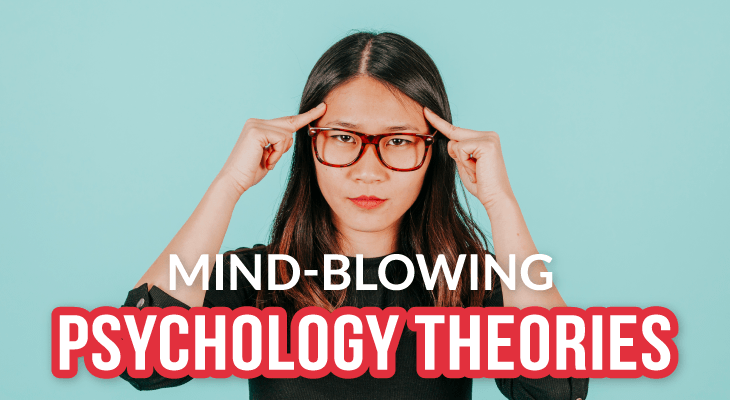5 Things You Need to Know Before Studying Psychology
Got your heart set on studying psychology? Here are some things you need to know before taking the plunge.
Updated 25 May 2022

So you’ve got your heart set on studying psychology.
You might be fascinated by what psychology is all about or perhaps you learned that this course has very little mathematics (untrue, btw). Before you jump the gun and apply for this course, here are some things you should know to help you make the right decision.
#1. Psychology is scientific

If you’re drawn to psychology because of the philosophical aspect of it such as Renee Descartes’ famous statement “I think, therefore I am” or John Locke’s theory of Tabula Rasa which signifies the human mind is a blank slate, then you’ve come to the right place.
However, psychology isn’t all just mumbo-jumbo theories. In fact, a very large part of it has a lot to do with science. Psychology is the scientific study of the human mind and behaviour, and that includes learning biological and chemical elements of their brain, types of illnesses and treatments. In addition, theories in psychology don’t just come about from nothing. There are tons of empirical research and experiments done to prove whether a theory is right or wrong, and some of them take years to do so.
If you’re walking into the field thinking you’ll only be asking the big, existential questions about life, you’re hugely mistaken. Don’t say we didn’t warn you!
#2. There is a lot of research in psychology

Is essay writing your forte? If so, you’ve hit the jackpot by choosing to study psychology.
Nearly all of your assignments will be in written form. For starters, there’s the all-important research paper that you’ll need to produce. This involves coming up with a topic, finding past research studies, running experiments and drawing your own conclusions. There will also be lots of essays and practical write-ups.
However, you won’t necessarily be snowed under all that research. You’ll also find yourself working on presentations and participating in forum discussions and group projects. These are all great ways to improve your critical thinking, independent learning and teamwork skills.
If you’re more of an exam person, don’t let this put you off. Despite the heavy workload on research, psychology also emphasises understanding and memorising key theories, biological and chemical processes, sickness and treatments — all of which are facts and will be questioned in your examination!

Monash University Malaysia
Bachelor of Psychology
✓Accredited by the Australian Psychology Accreditation Council (APAC)
#3. Independent and creative thinking is important

Unlike other courses, psychology is one field where you have to know how to ask the right questions and find an answer for it at the same time. As opposed to blindly learning from a textbook and mindlessly absorbing everything from lectures, most of the tasks are aimed to get you to think critically and look outside the box.
For example, say you’re presented with philosophical approaches from famous thinkers or theories from psychoanalysts and psychologists. Instead of digesting that information and moving on to the next chapter, you’ll be questioned if there are other explanations or flaws to those theories and approaches. This is where you have to think creatively and critically to debunk dated theories and come up with a modern take that’s applicable to today’s society.
While it does sound weird to disagree with established scientists, it's fun to be critical and develop your take on things. More importantly, you won’t be spoon-fed with information by your lecturers. This method forces you to think independently and at the same time enhances your perspective on things.
Apply for university with EduAdvisor
Secure scholarships and more when you apply to any of our 100+ partner universities.
Start now#4. Becoming a professional psychologist takes time

Graduating with a psychology degree doesn’t automatically make you a psychologist. To be a psychologist, you’ll need a postgraduate degree in your chosen field (e.g. clinical psychology, educational psychology, occupational psychology). Most postgraduate programmes take approximately 1 - 2 years to complete. So, in summary, it’ll take you about 5 - 6 years from SPM to become a qualified psychologist.
In addition, certain psychology professions are regulated. Clinical psychology, for instance, requires you to be registered with the Malaysian Allied Health Professions Council and have a practising certificate. Counsellors, on the other hand, are required to you be registered with the Lembaga Kaunselor Malaysia.
So, it’ll take a while for you to become a licensed, practising psychologist.

#5. The field is diverse

If you plan on pursuing this course because you want to be a counsellor, great! However, you need to know that psychology encompasses a much broader and interesting discipline. Who knows, you might find that your interest lies elsewhere.
Throughout your studies, you’ll be exposed to a range of modules and topics such as social psychology, criminology, abnormal psychology, educational psychology and health psychology. While what you learn in your degree is basic and fundamental knowledge, it sets a foundation for passion and interest which will help you decide which specialisation or career you want to pursue upon graduation.
The best part, a degree in psychology doesn’t necessarily mean you have to become a psychologist or counsellor! The degree alone provides you with a deep understanding of the human mind, making you a valuable asset in a wide variety of industries, whether it’s education, marketing, advertising, human resources or writing. Not to mention the transferable skills and tools that you gained from your studies will help you be adaptable in any environment.
Psychology is more than just a pile of textbooks. It touches on every aspect of real life and that’s one of the reasons why it’s such a fascinating field. As long as you’re passionate about the subject and are curious about what you’re learning, you’ll get along just fine in this field.






